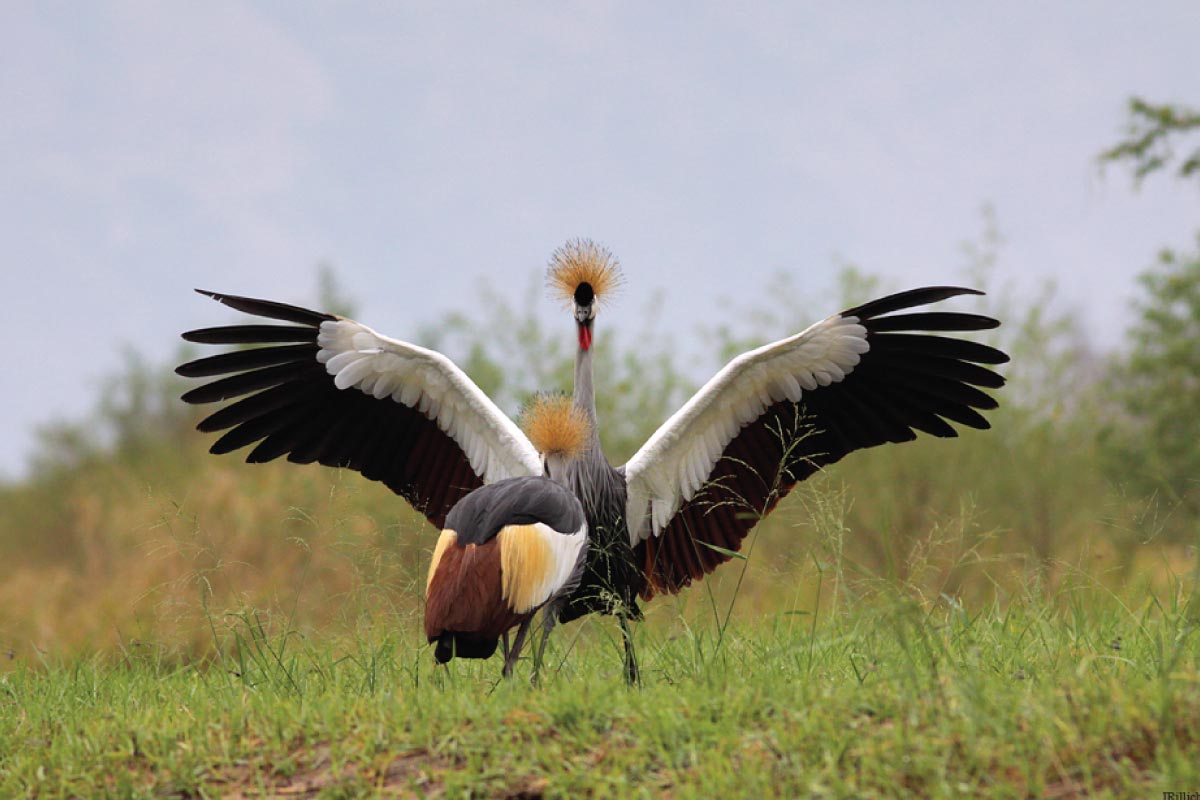By: George Mubiru
Uganda is a country of fascinating contrasts overly summed up as “The Pearl of Africa.” It is a fairy tale, a wonderful new world. The scenery is beautiful with people of different cultures.
Uganda today is the basis for a thriving tourist industry and for people from all over the world, it is a holiday paradise. Strangers approaching Uganda by air usually feel a lift of the spirit when they catch a glimpse for the first time of the rich greenness of the fertile north shore of Lake Victoria astride the Equator on the great central African plateau nearly 300 miles from the east coast rising from 3000 to 5000 feet above sea level.
Much as Uganda is unfortunate because it’s landlocked, Of its total area, about 16,000 square miles are open water. This is mainly its share of Lake Victoria, the largest and most prestigious freshwater lake in the world.
Uganda is dissected diagonally by River Nile, the longest river in the world with it’s origin in Jinja and the waters of the Lake Kioga system.
To the west, the boundary runs northwards from the Bufumbira Volcanoes in the extreme southwest, through Lakes Edward & George soaring over the beautiful snow peaks of the Ruwenzori Mountain and down again through the centre of Lake Albert.
The principal feature of the eastern border with Kenya is the vast whale-backed mass of Mount Elgon, another extinct beautiful volcano.
The country enjoys a mean annual temperature range of 71°C, and good prospects of obtaining about 50 inches of rainfall.
Despite its location astride the equator, there is a generally pleasant climate. This has aptly been described as a perpetual European summer with a hot sun, cool breezes and showers of rain.
While rainfall comes almost throughout the year, especially in the Lake Victoria zone and the mountainous regions, the climate pattern, however, does not vary greatly. In actual fact, there is a dry period between the end of November and the middle of March in the north and June to August in the south. Most of the rain in this case falls between March and November, with short breaks in June and July.
There is rather a dry belt that stretches across the country from West Nile through northern, Karamoja to the far eastern part of the country which has sometimes caused serious droughts.
Uganda is covered with a beautiful savannah, in which trees and shrubs are scattered through short and tall grass dominated by “hyparrhenia” species. These species are typically centred in the midlands and the northern region of the country. Hence, it is not surprising that the first impression of the visitor to Uganda is one of greenness.
The Lake Victoria zone supports the tropical rain forest ( Mabira) where broad leafy canopies shut out the sun and giant trees soared 150 feet in the air. It should be stated, however, that the original vegetation has been drastically encroached upon by cutting, burning, cultivation and grazing like elsewhere in the country like Budongo & the numerous beautiful forest cover in Bufumbira.
The forest reserve on Mount Elgon is however inaccessible which makes it difficult to exploit its resources though there is Mt Elgon National Park.
In his book, Higgins argues that economic development depends on what he calls “environmental determinism.” According to this theory, one of the factors that determines economic development in a particular country is the nature of soil that country has been endowed with by Nature.
Uganda is endowed with very fertile souls. Those of Mabira forests and Lake Victoria zone are among the most productive in the world, yielding two economic crops a year. Nakabango, in Jinja city, is believed to be the place with the most fertile soils in the country.
Much as some parts in Uganda do have poor soils than the rest of the country; nevertheless, the significance of this soil is relatively small, and hence would not retard economic development throughout the country.
Another noticeable feature of soils in Uganda is that ironstone is widely distributed through all types of soil. This ironstone is usually called “murrain,” and it makes excellent gravel roads. It is also found at different levels in the ground and in different forms. The loose murrain, for example, may be found from one to forty inches beneath the earth. Besides this, the solid ironstone, too is usually found close to the surface of the earth. Furthermore, this ironstone may extend many yards below the earth, and it is useful for building purposes.
It should be pointed out, however, that some parts of the country do suffer from soil erosion due to human and natural activities like storms, overcropping deforestation, overgrazing etc but since the land is mostly a plateau, erosion from runoff is minimal.
However, the abundance of heavy rainfall always keeps the growth of the protective vegetation cover, particularly elephant grass which covers most of the south and builds and restores soil fertility and structure. Another equally effective device that has stemmed down soil erosion is shifting cultivation and intensive terrace cultivation.
We have mineral deposits such as copper, oil, iron ore uranium, gold among others in different parts of the country.
With all this endowment, we don’t need to depend on imperialists. We just need to tap into the available resources for complete socio-economic transformation.
The writer, George Mubiru, is a Jinja-based researcher and NRM mobiliser / Email: [email protected]
If you would like your article/opinion to be published on Uganda’s most authoritative news platform, send your submission on: [email protected]. You can also follow DailyExpress on WhatsApp and on Twitter (X) for realtime updates.



